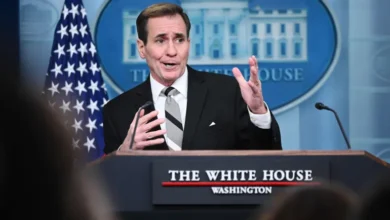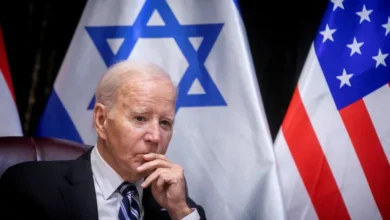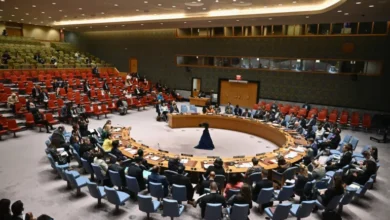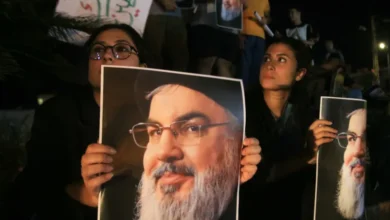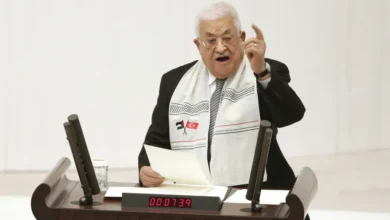Congress must prioritize human rights, strategy before releasing billions to Iran
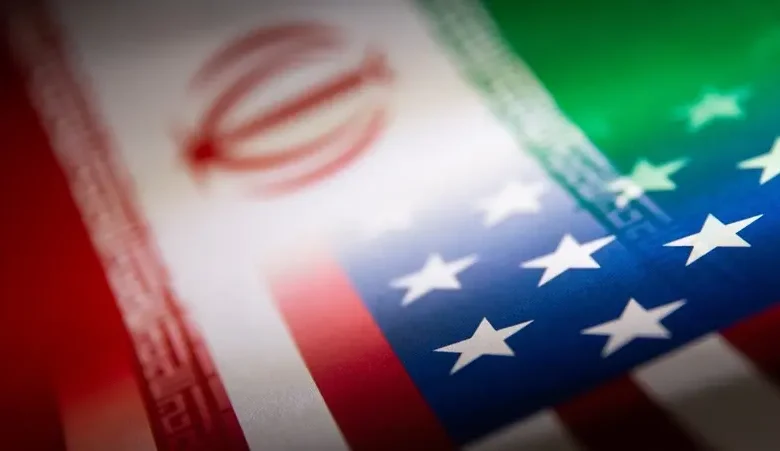
Earlier this year, it was in vogue. Political leaders from Washington to Paris, London to Berlin shouted, marched, and demanded: Women, Life, Freedom. It was the Cause du jour of the elite, celebrity set from Hollywood to Foggy Bottom.
Where are those human rights advocates now as credible rumors swirl that the United States is on the brink of releasing $17 billion in sanctioned funds to the terrorist regime in Iran?
Has Iran’s behavior changed? Hardly.
The regime is, in fact, on a killing spree. In the last few weeks alone, they have arbitrarily executed over 60 people, most of whom were from minority communities.
Among those executed in recent months have been British and Swedish citizens. Meanwhile, tens of thousands of young people, many women and girls, remain incarcerated for simply walking through the streets with their heads uncovered to protest the regime’s brutal murder of Mahsa Amini, a young Kurdish woman. Just last week, the regime put on trial the brave Iranian journalists who reported what they learned when they visited Amini in the hospital. Why isn’t every journalist in the free world screaming for the rights of these Iranian women journalists? Their names are Niloufar Hamedi and Elaheh Mohammadi. You can read about them in the Time 100, but when will we hear about them in the United Nations, the US Congress, the British and French Parliaments, and the German Bundestag?
Instead, Iran was elected vice president of the UN General Assembly just a few weeks after being elected chair of the UN Human Rights Council’s Social Forum! Iran also continues its brutal crackdown on non-Muslim communities, including a mother of two from the Bahai community arrested less than a week ago.
It’s time for those concerned about human rights to stop tweeting and start acting.
The exact opposite may be happening.
One reporter revealed that Robert Malley, the Department of State’s Envoy for Iran, has been meeting secretly with the Islamic Republic of Iran’s ambassador to the United Nations in New York. Another noted that the United States is preparing to facilitate the release of as much as $17 billion in exchange for long-held American hostages. And, after canceling a visit to Israel this week, the Secretary of State paid a visit to the Gulf Cooperation Council. It is the first such meeting between the Secretary of State and the GCC since diplomatic relations were restored between various Arab nations and Iran.
Certain figures in the White House want you to think all of this is good news (it’s why they are leaking the details). It isn’t. We’ve seen this play before.
Here’s how it goes: About every six months, the Department of State decides that they’re willing to make a deal with Iran at virtually any cost. This decision is primarily based on the breathless negotiating naivete of Malley. Though, it is fully supported by the Secretary of State – a Secretary of State who knows better.
Each time it leads to a series of predictable actions: the US hedges in its support of its key Middle East allies (those allies often move closer to China and Russia) while the US continues with largely cosmetic sanctions against Iran as a type of deflection (while simultaneously tapering off public criticism). Meanwhile, Iran uses American largesse to extort more from the United States before Iran’s Supreme Leader tells America to go to hell again.
Sometimes Iran decides to go further and cut a “less for more” deal – big or small – which it never intends to abide by. If the Biden administration should have learned any lesson from its past dealings with Iran, it should be that Iran cannot be trusted to fulfill its promises. Iran convinces America to pay for it to buy time to continue its mission to secure nuclear weapons. This is why Iranian oil exports have reached their highest level since the reimposition of sanctions in 2018.
The problem is that the costs of these diplomatic charades are getting higher and higher for the long-suffering people of Iran. The exact figures in the Obama administration who left Iranians to die during the Green Revolution may be on their way to doing the same in reaction to: women, life, freedom.
If Washington, London, Paris, Berlin, and Brussels don’t care about human rights, they should at least care about security, right?
Wrong. Iran continues to cause chaos in the vital shipping lanes through the Straight of Hormuz. Just this weekend, another ship was harassed by Iran’s Revolutionary Guards; routinely, oil vessels are impeded by Iran’s terrorist vigilantes.
On top of it all, there is Iran’s actual nuclear weapons program which everyone seems to believe could be weeks from the point of no return. Even if the Department of State thought it had somehow contained Iran’s nuclear ambitions (and it hasn’t), it could not be denied that Iran remains a primary supplier of drones and other weaponry to target civilians in Ukraine.
Of course, this all means that if Iran somehow convinces Blinken and Malley to hand it $17 billion, then the United States will – in effect – fund both sides of the war in Ukraine.
It’s time for members of Congress to exercise oversight and force Foggy Bottom to return to reality. They can begin with this hard truth: most of Iran’s nuclear enrichment has taken place during the Biden administration, and the administration’s failed Iran policy will soon force Israel to take matters into its own hands, with or without the United States, but likely with the help of its neighbors.
Rabbi Abraham Cooper is the associate dean of the Simon Wiesenthal Center and the chair of the United States Commission on International Religious Freedom. Rev. Johnnie Moore is the president of The Congress of Christian Leaders and was twice appointed Commissioner on the US Commission for International Religious Freedom. Opinions are their own.

